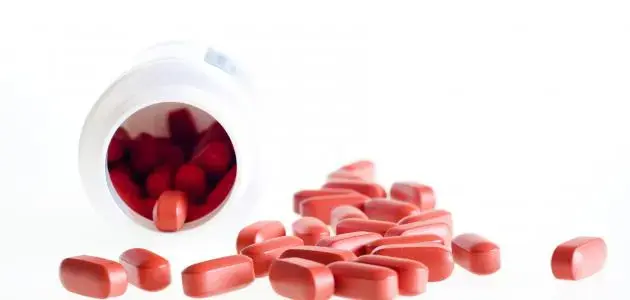Iron Supplements and Anemia
Treating Anemia from Chronic Conditions: Chronic diseases such as cancer, kidney issues, and heart problems can cause anemia. Iron supplements, particularly intravenous iron, can support red blood cell production and improve anemia symptoms, especially in patients undergoing chemotherapy.
Iron Deficiency Anemia: Low-iron diets, heavy menstruation, or blood loss can lead to iron-deficiency anemia. Oral iron supplements, prescribed by a doctor, along with iron-rich foods, can effectively restore iron levels and alleviate symptoms.
Benefits of Iron for Hair Health
Iron is vital for certain enzymes that support hair growth. Low iron levels may hinder the regeneration of hair follicle cells, potentially leading to hair loss. In such cases, iron supplements can be prescribed to correct the deficiency and reduce hair thinning.
Benefits of Iron for Skin
Iron stimulates B vitamins in the body and enhances skin radiance and vitality. When iron levels are low, supplements may be recommended. However, excessive intake may damage skin structures, so it should only be used under medical supervision.
Iron and Brain Function
Iron supplements may improve short-term memory and cognitive test performance, especially in pregnant women and children with anemia. Some studies also suggest positive effects on cognitive and motor development in infants and children when taken for at least two months.
Iron for Heart Health
While oral supplements show limited benefit for heart failure, intravenous iron therapy has been shown to improve exercise capacity, quality of life, and reduce symptoms in patients with heart failure. However, more large-scale studies are needed.
Iron and Restless Legs Syndrome
Oral iron supplements may help relieve symptoms of restless legs syndrome, such as discomfort and sleep disturbances, especially in individuals with low iron levels.
Iron and Athletic Performance
Iron is essential for metabolism and oxygen transport through hemoglobin and myoglobin. Supplementation can enhance endurance and athletic performance, particularly in female athletes with iron deficiency.
Iron and Esophageal Cancer
Preliminary research suggests a potential link between iron supplementation and reduced risk of esophageal cancer, though further investigation is required.
Iron for Fatigue
Low iron levels can lead to unexplained fatigue and reduced energy. Supplements may help restore iron stores and improve energy levels, even in those without diagnosed anemia.
Iron and Postpartum Depression
Early iron supplementation after childbirth may significantly improve postpartum depression symptoms, likely due to the correction of low ferritin levels that occur after delivery.
Iron and Fertility
Women who use iron supplements have a lower risk of ovulatory infertility compared to those who don't. This suggests a potential role for iron in supporting reproductive health.
Iron for Children
Reducing Sleep Apnea Episodes: Treating iron deficiency anemia in children may decrease episodes of sleep apnea.
Improving Attention in ADHD: Iron supplementation (80 mg/day) may alleviate symptoms of ADHD in children with low ferritin levels, though larger studies are still needed.
Who Needs Iron Supplements?
- People with Iron Deficiency: Iron-deficiency anemia results in poor oxygen transport in the blood and often requires supplementation.
- Pregnant Women: Pregnancy increases iron requirements, and supplements are often necessary under medical guidance.
- Frequent Blood Loss: Individuals who regularly donate blood or suffer from chronic bleeding may need supplements.
- Dialysis Patients: Kidney failure often leads to anemia, and dietary restrictions may reduce iron intake.
- People on Iron-Depleting Medications: Certain drugs interfere with iron absorption and may require supplementation.
- Children and Adolescents: Rapid growth increases iron needs, and deficiency may affect learning and development.
- Endurance Athletes: Long-distance runners and others performing high-intensity activities are at risk of iron loss.
Dosage and Usage Tips
- Iron is best absorbed on an empty stomach, but food may be needed to reduce side effects like nausea.
- Avoid taking iron with milk, calcium, antacids, high-fiber foods, or caffeine-rich drinks; wait at least two hours.
- Vitamin C enhances iron absorption, so pairing iron with orange juice or a vitamin C supplement is recommended.
Side Effects and Safety
Iron supplements are generally safe when used as directed but can cause stomach upset, constipation, diarrhea, dark stools, or heartburn. Liquid forms may stain teeth. Intravenous iron is effective but may cause temporary side effects like headache or taste changes. Muscle injections are less common due to pain and potential staining.
Special Precautions
- Diabetes: High iron intake might increase heart risk; consult a doctor.
- Ulcers or IBD: Iron may irritate the digestive tract.
- Blood Disorders: Conditions like thalassemia require caution with iron.
- Premature Infants: Risk of complications if vitamin E is also low.
- Genetic Bleeding Disorders: Use with caution, especially with nosebleeds.
Drug Interactions
Iron may reduce the absorption or effectiveness of certain medications. These include:
- Quinolone and Tetracycline antibiotics
- Bisphosphonates
- Levodopa
- Levothyroxine
- Methyldopa
- Mycophenolate mofetil
- Penicillamine
- Chloramphenicol
Spacing doses by at least 2 hours is typically recommended.
Iron IV and Injections
Iron can be administered via IV or intramuscular injection in cases of severe deficiency. IV iron is generally well-tolerated but may cause mild side effects such as nausea, joint pain, or allergic reactions. Intramuscular injections are faster but more painful and may cause permanent discoloration at the injection site.
Recommended Daily Intake of Iron
| Age Group | Recommended Daily Intake (mg) |
|---|---|
| 0–6 months | 0.27 |
| 7–12 months | 11 |
| 1–3 years | 7 |
| 4–8 years | 10 |
| 9–13 years | 8 |
| Boys 14–18 years | 11 |
| Girls 14–18 years | 15 |
| Men 19–50 years | 8 |
| Women 19–50 years | 18 |
| 51+ years (all genders) | 8 |
| Pregnant women | 27 |
| Breastfeeding women (14–18 years) | 10 |
| Breastfeeding women (19+ years) | 9 |
Leave a comment
Your email address will not be published. Required fields are marked *




